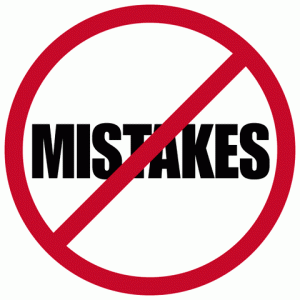 Three Content Marketing Mistakes You Can Easily Avoid
Three Content Marketing Mistakes You Can Easily Avoid
When it comes to content creation, finding the right balance of information and effective marketing of your business is difficult. One of the driving factors of your content is to get customers, but the best way to do this is to present them with intriguing and useful content that will help them in their business lives. eVisible has years of experience with content marketing services and we’ve learned some of the most common mistakes that businesses make when they create their own content.
Here’s what to avoid when it comes to your own SEO copywriting or any content written by an outside agency:
Unreadable content: When it comes to online content, writing that is crisp, focused and to the point always has the best chance of catching — and holding — the reader’s attention. You want to avoid run-on sentences or using “purple prose.” One way to avoid this is by using the Content Readability score provider offered by eVisible. It will give you an idea of how easily the average reader can process your content.
Diminishing returns: Many content creation campaigns start out with a bang, as companies are brimming with information they want to share with their customers. But in many cases, the quality of the writing quickly declines as the well of immediate story ideas runs dry. Combat this by thinking of questions your customers might be asking, reviewing your competition for story ideas and adding a personal touch to your writing.
Not involving the customers: The best corporate blogs and other online marketing campaigns feel like a conversation between a company and its customers. You can encourage your customers to get active and involved to keep it from feeling like you are simply spitting marketing copy at them. Have them submit pictures of them with your product at famous tourist attractions or unusual sites. Invite customers to write guest posts explaining new or interesting ways they’ve used your product or service. Make sure you make it clear to customers that you own the content they submit to you in order to avoid any legal headaches down the road.
